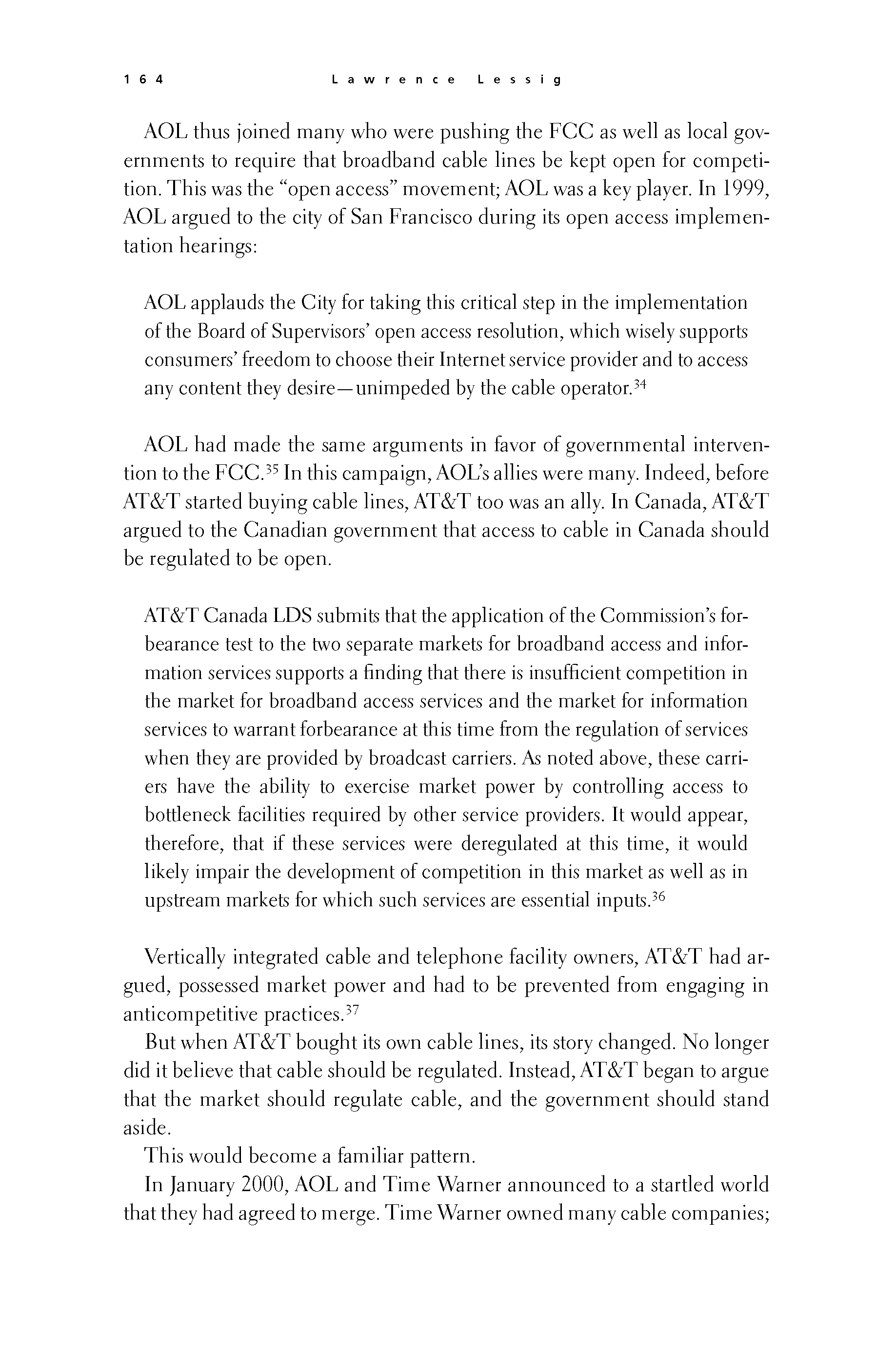 p163 _
-chap- _
toc-1 _
p164w _
toc-2 _
+chap+ _
p165
p163 _
-chap- _
toc-1 _
p164w _
toc-2 _
+chap+ _
p165
AOL thus joined many who were pushing the FCC as well as local gov-
ernments to require that broadband cable lines be kept open for competi-
tion. This was the "open access" movement; AOL was a key player. In 1999,
AOL argued to the city of San Francisco during its open access implemen-
tation hearings:
____ AOL applauds the City for taking this critical step in the implementation
____ of the Board of Supervisors' open access resolution, which wisely supports
____ consumers' freedom to choose their Internet service provider and to access
____ any content they desire -- unimpeded by the cable operator.[10-34]
AOL had made the same arguments in favor of governmental interven-
tion to the FCC.[10-35] In this campaign, AOL's allies were many. Indeed, before
AT&T started buying cable lines, AT&T too was an ally. In Canada, AT&T
argued to the Canadian government that access to cable in Canada should
be regulated to be open.
____ AT&T Canada LDS submits that the application of the Commission's for-
____ bearance test to the two separate markets for broadband access and infor-
____ mation services supports a finding that there is insufficient competition in
____ the market for broadband access services and the market for information
____ services to warrant forbearance at this time from the regulation of services
____ when they are provided by broadcast carriers. As noted above, these carri-
____ ers have the ability to exercise market power by controlling access to
____ bottleneck facilities required by other service providers. It would appear,
____ therefore, that if these services were deregulated at this time, it would
____ likely impair the development of competition in this market as well as in
____ upstream markets for which such services are essential inputs.[10-36]
Vertically integrated cable and telephone facility owners, AT&T had ar-
gued, possessed market power and had to be prevented from engaging in
anticompetitive practices.[10-37]
But when AT&T bought its own cable lines, its story changed. No longer
did it believe that cable should be regulated. Instead, AT&T began to argue
that the market should regulate cable, and the government should stand
aside.
This would become a familiar pattern.
In January 2000, AOL and Time Warner announced to a startled world
that they had agreed to merge. Time Warner owned many cable companies;
[[164]]
p163 _
-chap- _
toc-1 _
p164w _
toc-2 _
+chap+ _
p165